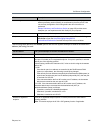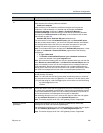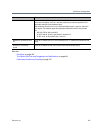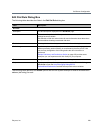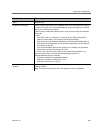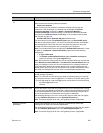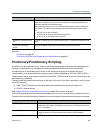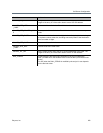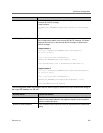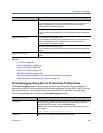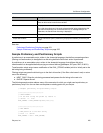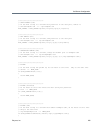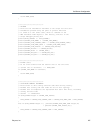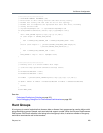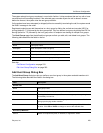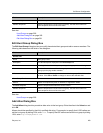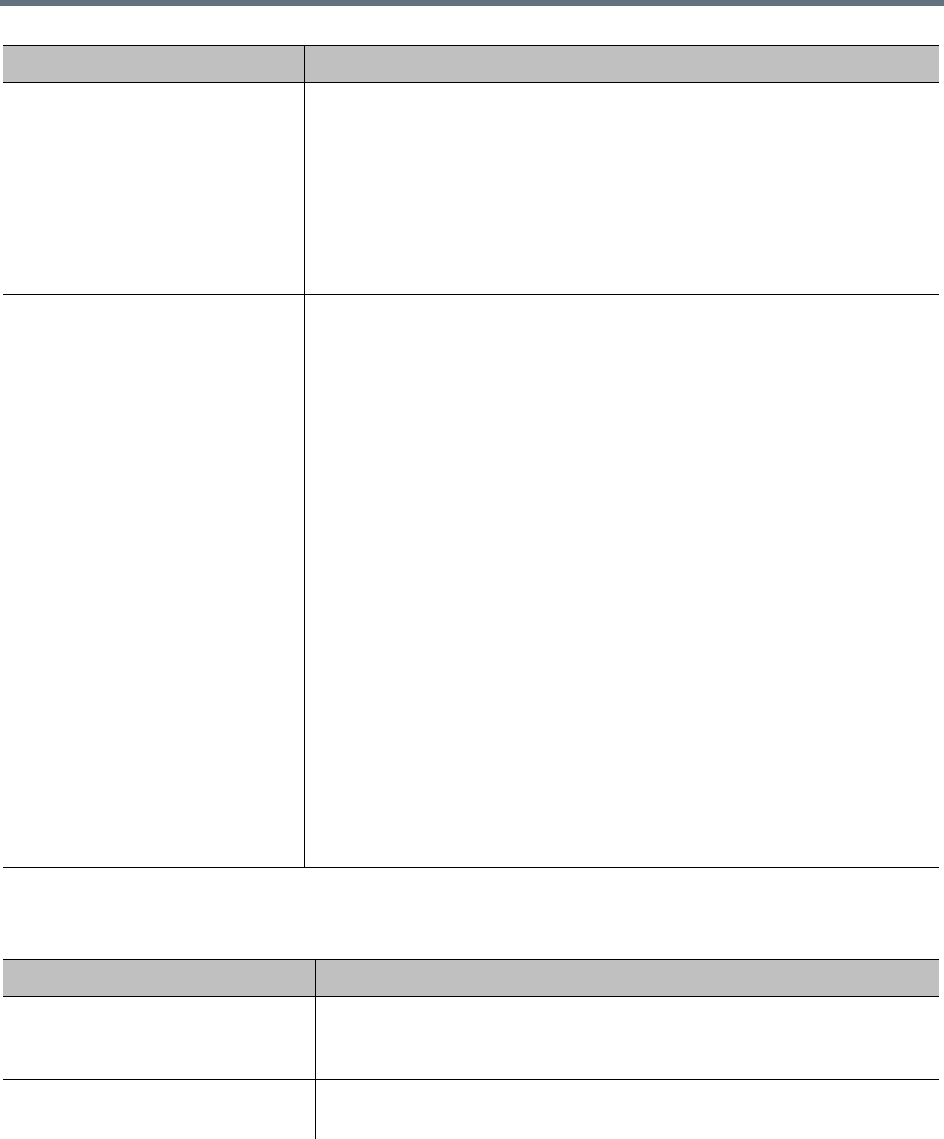
Call Server Configuration
Polycom, Inc. 253
The following table shows how different dial rule actions apply a preliminary script’s modified dial string to
the output SIP headers in a SIP call.
INPUT_SIP_HEADERS For SIP calls only, an associative array containing the SIP headers in the
received SIP INVITE message.
Usage example:
if(INPUT_SIP_HEADERS["Supported"].matches(/.*ms-forking.
*/))
{
...
}
OUTPUT_SIP_HEADERS An empty associative array. Headers that the script adds to this array replace
the corresponding headers in the received SIP INVITE message. If a header
added to this array isn’t in the received INVITE message, it’s added to the
INVITE message.
Usage example 1:
var list = OUTPUT_SIP_HEADERS.get("User-Agent");
if (list == null)
{
list = new java.util.LinkedList();
OUTPUT_SIP_HEADERS.put("User-Agent", list);
}
list.add("Someone. Not a RealPresence DMA 7000.");
Usage example 2:
var list = OUTPUT_SIP_HEADERS.get("Some-Custom-Header");
if (list == null)
{
list = new java.util.LinkedList();
OUTPUT_SIP_HEADERS.put("Some-Custom-Header", list);
}
list.add("Whatever you want");
Dial Rule Action Output SIP Headers
Resolve to registered endpoint The To header is replaced with the modified dial string. The request URI is
based on the contact address of the registered endpoint, and not replaced
with the modified dial string.
Resolve to external address The To header and the request URI are both replaced with the modified dial
string.
Variable Initial value



